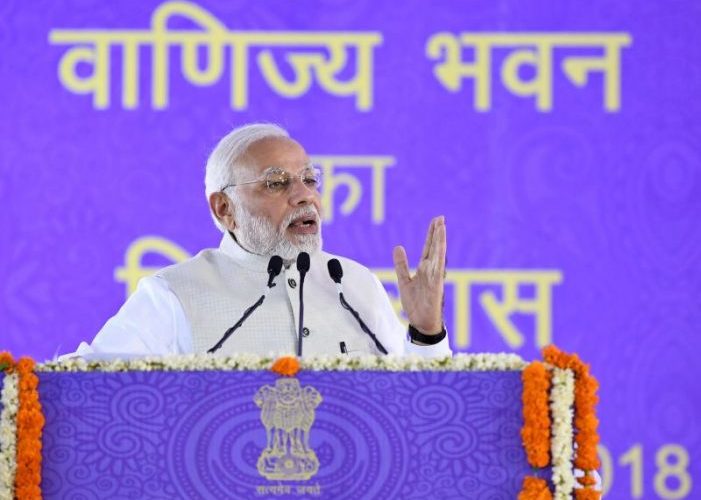
In his first speech after winning another term for the BJP with an increased and historic mandate, Prime Minister Narendra Modi drew parallels from the 2019 Lok Sabha elections and the war of Mahabharat.
“When Mahabharat ended, Krishna was asked ‘whose side are you on?’ Krishna replied ‘I’m not on anyone’s side. I’m only on the side of Hastinapur’,” Modi said drawing parallels between Hastinapur and India, perhaps alluding that “Indians” had voted for “India”, and underscoring how nationalism was the central plank of BJP’s general poll campaign.
Narendra Modi, who is the Prime Minister-elect, also referred to the journey of the BJP from two MPs who won in 1984 elections to the repeat of the huge mandate Modi received when he talked about “do se dobara“.
“There were a lot of ups and downs in this journey. But we have never lost our traditions, our humility in this journey,” Modi said to huge applause of his party workers at the BJP headquarters in the capital.
Modi said the voters of India had by giving such a huge mandate helped collectively see the dream of ‘Naya Bharat’.
“Aapne fakir ki jhholi bhar di. I bow my head to the 130 crore Indians. The election in India was the biggest episode in democratic world. People came out to vote in 40-45 degree Celsius heat. What happened in these elections will continue to inspire generations to come,” said Modi.
“Secularism was a tax that used to be paid till today. Fake secularism and its leaders who were calling for the secular forces to unite have been exposed and have fallen silent over the past five years,” Modi said.
The BJP, which rose against all caste calculations, posed as a resistance by opposition parties to Modi’s nationalism juggernaut especially in Uttar Pradesh and Bihar, had created just two castes in India, Modi said.
“There are just two castes in the country now. Only those who are poor and want to get out of poverty and those who want to help poor out of their poverty.”
2019 was also a historic year, Modi said, for India because it is in this year when India completes 75 years of independence and commemorates Mahatma Gandhi’s 150 years.
Modi also made a public appeal to all the parties, even those who fought pitched battle against him in the recent campaigns, to work with him to create a better India.
“Though governments are formed with majority but country runs with consensus. I want to state publicly. We need to take everyone together. We have to work together for the interests of the country.”
Modi also made three promises to the public. Three parameters on which Modi asked people to measure his performance by.
“Will never work with ill intent. I will never do anything for personal benefit. Every particle of my body, all my efforts, are for my fellow countrymen,” Modi said.
Modi’s speech was preceded by the speech of party president Amit Shah. He called BJP’s return mandate the biggest political victory in India’s political history. “It was because Modi worked for the 28 crore poorest people through various schemes that people voted us back in power.”
He named several states like Andhra Pradesh, Arunachal Pradesh, Delhi and Gujarat, where BJP had secured over 50% votes, and also mentioned states like Mizoram, Odisha, Tripura, where the Congress wasn’t able to open its account.
Shah also took a dig at TDP supremo Chandrababu Naidu, saying that the efforts that he had put in putting together a coalition, had he put the same effort in his own state of Andhra Pradesh he might have secured more seats for his party, the TDP.
Shah stressed on West Bengal, which was perhaps given the nature of violent political contest, one of the toughest battles for the BJP. “I want to commend the labours of my ground workers due to whom we secured such a huge victory. Modi’s next five years will be the period of BJP’s expansion. There will not be a political region we won’t be able to conquer,” Shah said.


